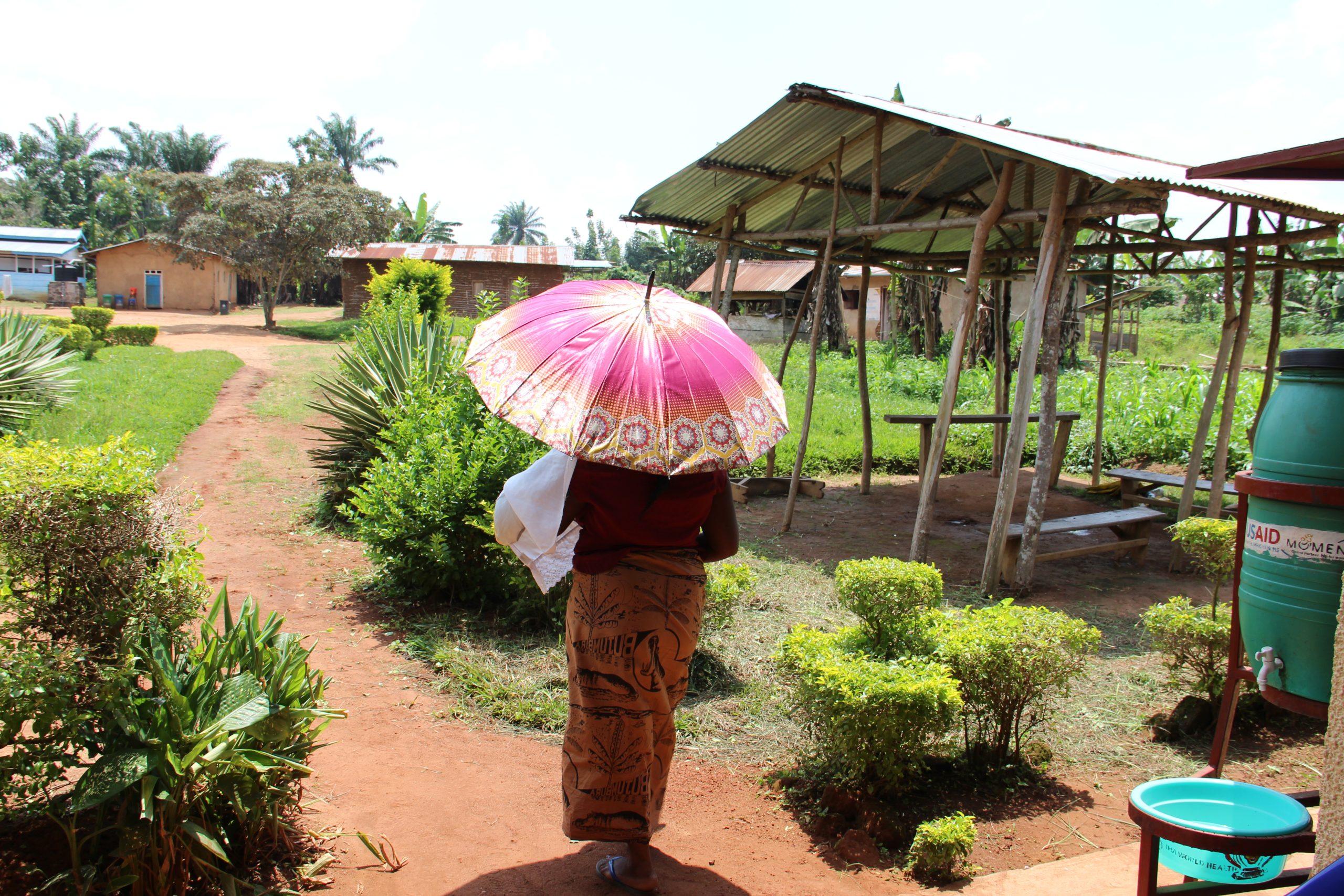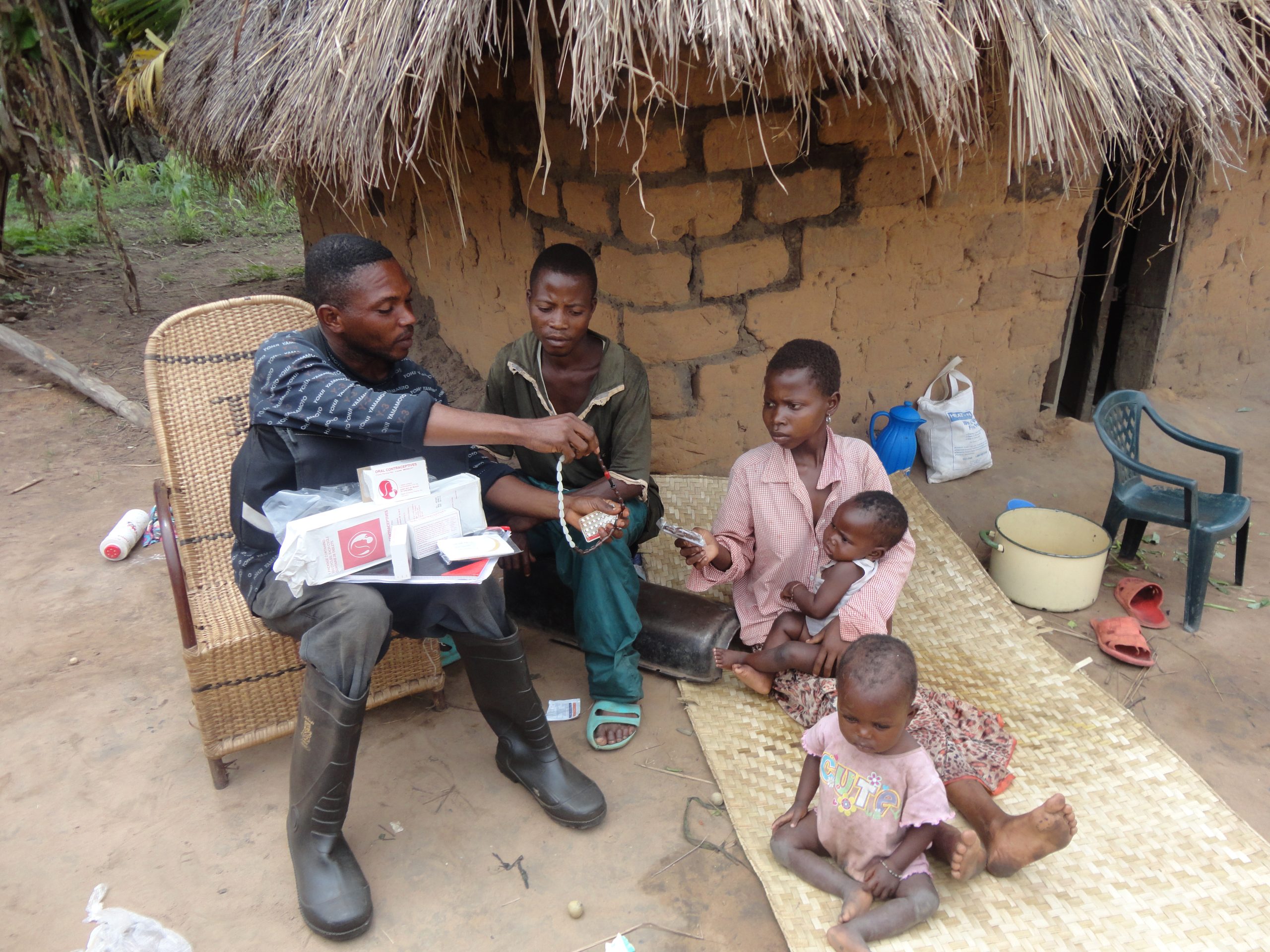A Recurrent Monitoring System Enables Understanding of Health Resilience in Fragile Settings
Published on April 1, 2024
By Tess Mpoyi, former Senior Policy Advisor, Population Reference Bureau and Elizabeth Leahy Madsen, Project Director, MOMENTUM Knowledge Accelerator
USAID defines a resilient health system as one that can “to mitigate, adapt to, and recover from shocks and stresses.” Building resilience is particularly important in fragile settings, where communities are vulnerable not only to acute shocks such as conflict, disease outbreaks, and disaster, but also to recurrent and chronic stresses. For individuals and households in fragile settings, challenges such as food insecurity and environmental changes can persist and affect their ability to maintain good health.
To better understand the impacts of shocks on households, how risks to shocks evolve, and coping strategies that may be unique to health-related shocks, MOMENTUM Integrated Health Resilience is undertaking a recurrent monitoring system (RMS) in 64 communities across North Kivu, Democratic Republic of Congo (DRC). While the DRC is a setting where shocks are common, it also offers strong partnerships and many opportunities to address health needs. The RMS focuses on how shocks affect family planning and reproductive health (FP/RH) and maternal, newborn, and child health (MNCH) in households where the primary caregiver has a child under 12 months. With a baseline and two follow-up surveys spaced four months apart, it will also explore how households survive, cope, or thrive in the face of those shocks.
MOMENTUM’s effort represents the first known use of an RMS for health and aims to illuminate how health resilience differs from other types of resilience. Dr. Cougar Hall presented MOMENTUM’s plans for the RMS at the 2023 Resilience Evidence Forum in Cape Town, South Africa. After the Forum, Dr. Hall and colleague Dr. Eta Mbong, Chief of Party for MOMENTUM Integrated Health Resilience in the DRC, shared more about their innovations and insights with MOMENTUM Knowledge Accelerator.

Can you briefly describe the RMS approach that is being used?
Dr. Cougar: Essentially, an RMS is a longitudinal panel survey that includes baseline data collection and several follow-up rounds spaced approximately three months apart. Our survey builds on an assessment of resilience and women’s empowerment in Burkina Faso and the experience of the Resilience Evaluation, Analysis, and Learning Award. Survey modules used only during the baseline are designed to identify and/or measure key variables related to household characteristics, assets, livelihood, health status, individual and household resilience, aspirations, life satisfaction, social capital, and decision-making, such as knowledge, attitudes, and perceptions. Modules asked during the baseline and follow-up rounds will explore general and health-specific shocks and coping strategies, health and accessing care, humanitarian assistance, child nutrition and health, contraception, maternal diet, and food security.
So many important questions can be answered through the RMS approach. What are the downstream impacts of a shock? How do shocks impact health outcomes? How did the impact of multiple complex risks evolve from one survey period to the next? What coping strategies did individuals and households employ to deal with general and health-related shocks? How are coping strategies related to resilience capacities? Do the coping strategies and resilience capacities differ for health-related shocks?
Why was the DRC selected for this approach?
Dr. Cougar: There are two main reasons why the Democratic Republic of the Congo was selected for this project. First, the DRC is a country that experiences high levels of conflict and fragility. Over 100 million residents encounter violence, environmental shocks (including climatic and seismic shocks), economic shocks, and health shocks. These cause disruptions that can impact access to and provision of services and resources that sustain health, including family planning and reproductive health, maternal and newborn child health, and nutrition.
Second, MOMENTUM enjoys several well-established, positive, and functional working relationships with local partners in the DRC. There is often a difference between what a project would like to accomplish and what a project can accomplish. It is strong working relationships with local partner organizations that make this project doable.

How does health resilience differ from other types of resilience?
Dr. Cougar: It might not! To be honest, the research team is divided on this question, and it’s one of the reasons there is so much interest in this project. It may be that resilience is dependent on absorptive, adaptative, and transformative capacities generally and that a formulation of health-specific resilience is merely a prioritizing exercise in the face of limited resources. I think it is safe to say that everyone working on the project is passionate about health promotion and equity. There is certainly a strong desire to add to the growing knowledge base around resilience and identify strategies and capacities for reducing acute and chronic health vulnerabilities in the face of shocks.
What kind of shocks will this study look at?
Dr. Eta: We will study shocks consistent with resilience monitoring efforts conducted in the past for other sectors, including environmental/climate, biological, conflict, economic, and health shocks. Respondents will indicate whether their household experienced any of these shocks during the three months before data collection, how frequently each shock occurred, the impact of each shock on their household in general and particularly on their health and their ability to access health services, and to what extent the household has recovered from each of the shocks.
What are the anticipated outcomes of the RMS in DRC?
Dr. Eta: This RMS will enable MOMENTUM’s support to the DRC Ministry of Health (MoH) to better understand:
- The nature, context, frequency, and effects of shocks and stresses in the DRC, specifically in North Kivu, that impact individual and household health, especially in the areas of FP/RH, MNCH, and nutrition.
- Resilience capacities and coping strategies, whether positive or negative, that individuals and households use when trying to achieve good FP/RH, MNCH, and nutrition-related health during shocks.
- Resilience capacities and coping strategies that are associated with health-resilient households, i.e., households that maintain recommended health practices and outcomes in the face of shocks.
How will this effort help build health resilience?
Dr. Eta: The evidence that MOMENTUM will support the MoH to generate through this RMS in health will be shared with other health and non-health actors. Study findings will enable the project and other stakeholders to provide more targeted support to communities, especially those of North Kivu, that will allow families and communities to become health resilient. The study’s findings will inform better and more efficient use of limited available resources to contribute to making families and communities resilient to shocks and stresses that affect health.
How do you anticipate the RMS findings might be used to enhance equity in the face of shocks?
Dr. Eta: Disaggregated analyses of RMS data, for example by sex, household type, socioeconomic status, and educational attainment of the household head, would enable the identification of differences in access to health services, especially during shocks. Similar differences are likely going to be identified with regards to how those different groups cope during periods of shock and mitigate their impact. Such information would spur reflections on how to adapt the support provided to households and communities to limit widening of gaps in access and therefore inequality often caused by shocks.
How will I access the findings when they are available?
The RMS consists of a baseline and two follow-on rounds. The results from the baseline will be publicly available at the end of April, and the corresponding baseline report will be accessible on the MOMENTUM website. The follow-on round results won’t be available until late 2024.

